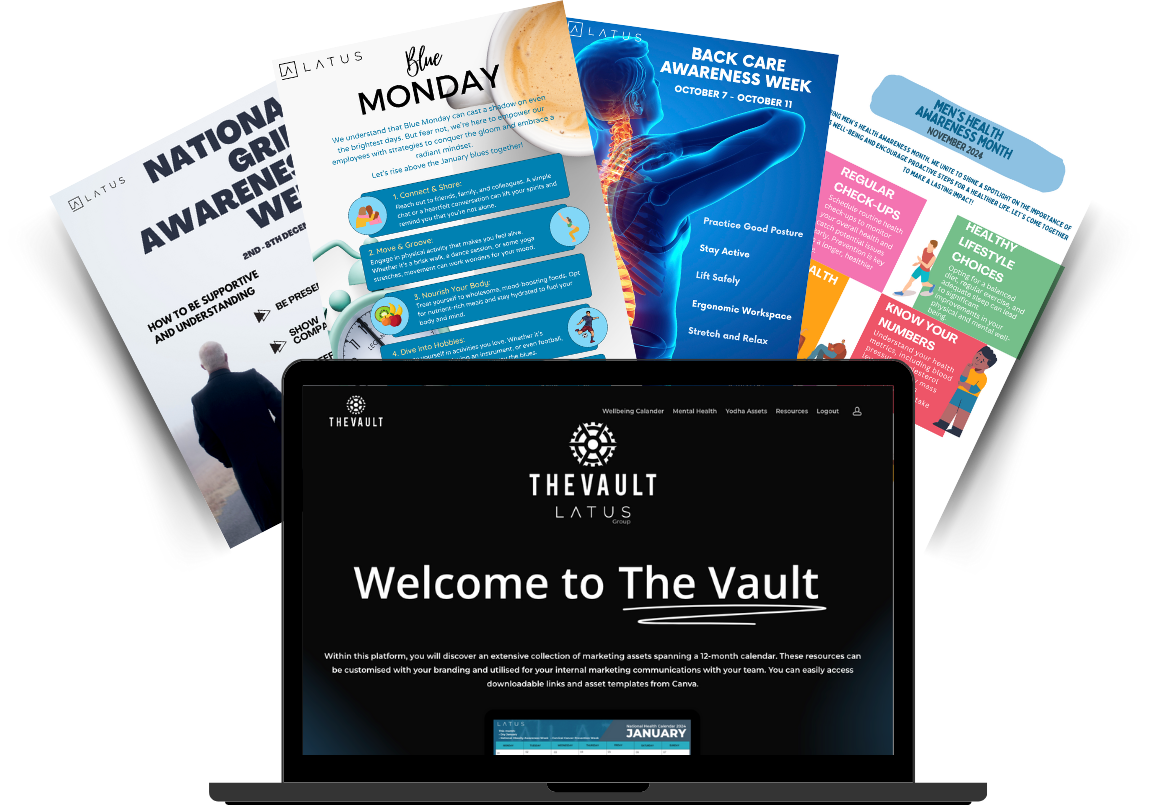“80% of aircraft incidents are a result of human error, with pilot fatigue accounting for 15-20% of human error in fatal accidents.” – BBC

Occupational health is vital to the aviation industry for several reasons, as it directly influences both the safety and efficiency of operations. The aviation sector is characterised by high-stress environments, long working hours, and physically demanding roles. Safeguarding the health and well-being of workers not only protects individuals but also ensures safe flights and mitigates potential risks.
“Employers must prioritise workplace safety by setting clear policies, assessing risks, implementing controls, and providing training.” – Health and Safe Executive.
Why Occupational Health is Crucial to Aviation
1. Safety of Passengers and Crew
The health of aviation professionals, including pilots, air traffic controllers, cabin crew, ground staff, and maintenance workers, is vital to maintaining the safety of air travel. Fatigue, stress, or physical illness can impair decision-making, reaction times, and overall performance. Pilots, for example, are responsible for controlling aircraft under complex and stressful conditions. Any deterioration in their physical or mental state can result in dangerous situations, compromising passenger and crew safety.
2. Fatigue Management
Aviation professionals, especially pilots and cabin crew work long hours and across different time zones, leading to significant fatigue. Lack of sleep and excessive work hours can impair cognitive function and lead to accidents and injury. Occupational health programs that address sleep, rest periods, and mental health are crucial to managing fatigue. They also help prevent aviation-related incidents caused by human error.
3. Prevention of Work-Related Injuries
Aircraft maintenance workers, ground crew, and baggage handlers are often exposed to physical risks, such as lifting heavy equipment, working in confined spaces, or dealing with hazardous materials. Occupational health services provide preventive measures to reduce the risk of musculoskeletal injuries. Ensuring proper training, ergonomics, and safety protocols reduces the likelihood of injuries, leading to fewer disruptions and a more efficient operation.
“The psychological wellbeing and positive mental health of commercial pilots is of fundamental importance to safe Commercial Air Transport (CAT) operations.” – The Civil Aviation Authority.
4. Mental Health and Stress Management
The aviation industry is highly demanding, and employees are often under significant pressure to meet strict schedules, handle customer expectations, and respond to emergency situations. Mental health issues, such as anxiety, depression, and stress, can severely affect performance. Occupational health strategies, such as counselling services, stress management programs, and mental health awareness, play a crucial role in supporting the workforce’s psychological well-being.
5. Compliance with Regulations
Aviation authorities like the Civil Aviation Authority (CAA), European Union Aviation Safety Agency (EASA), and other regulatory bodies enforce strict health and safety regulations for aviation professionals. Regular medical evaluations, psychological assessments, and fitness tests ensure that employees meet the physical and mental standards necessary for their roles. Occupational health initiatives help ensure compliance with these regulations, avoiding penalties and ensuring public trust.
6. Increased Productivity and Efficiency
A healthy workforce is a productive workforce. Occupational health initiatives can enhance overall worker productivity by preventing illnesses and injuries that could lead to downtime or absences. When workers are healthy, they can perform their duties more efficiently, which benefits the airline’s operational performance, including reduced delays and improved customer service.
7. Long-Term Career Sustainability
Occupational health programs not only focus on short-term health but also on the long-term well-being of aviation professionals. For example, pilots and air traffic controllers may work well into their 60s. Proactively managing their health ensures that they can continue working safely throughout their careers without experiencing health-related impairments that might force early retirement.
A study from Focus found that of over 700 current airline plots found that 54% of respondents reported suffering feelings of being depressed or anxious, and a whopping 78% suffered feelings of burnout or exhaustion.
The impact of poor employee health on aviation businesses can be significant, affecting both individuals and the entire operation. Employees in aviation roles rely on their physical and mental health to perform duties safely and efficiently. A decline in health can lead to an increased risk of accidents, causing operational disruptions, higher costs, and reputational damage.
For example, if a pilot or air traffic controller is fatigued, stressed, or unwell, their ability to make decisions or respond to emergencies may be compromised. Similarly, ground crew or maintenance workers with injuries or exposure to hazards might experience slower response times, affecting efficiency and safety. These issues can result in delays, accidents, or fatalities.

Suitable Occupational Health Services
- Pre-Placement Health Screenings
- Fit For Work Medical
- Counseling (CPT or Person Centred)
- Audiometry
In the high-stakes world of aviation, the health of every worker – whether in the air or on the ground- is a critical factor in ensuring safety and efficiency. Implementing effective health and safety measures not only complies with regulations but fosters a culture of well-being.
Webinar
Hot off the heels of our successful webinar on Alcohol Awareness, we’re now moving on to arguably one of the most important topics we’ve covered to date – The Importance of Sleep.
Feeling sluggish? Foggy-headed? Tired of being tired? You’re not alone. In today’s fast-paced world, sleep often takes a backseat, but the truth is, quality sleep is the cornerstone of a healthy, happy, and productive life.
Joining us on Wednesday 26th February is James Wilson aka The Sleep Geek, to discuss the simple science behind sleep and giving you an insight into how sleep works.
To register click here

The Vault
The Vault – Your Ultimate Resource for Workplace Wellness
We can help you educate your employees on the importance of sleep with expertly crafted posters, infographics, and social media posts.
The Vault is an exclusive service that provides a variety of resources to help you raise awareness on key wellness topics such as sleep health, nutrition, mental health, and more.
We have a selection of sleep-focused materials available for you to download and share with your colleagues.
Register for The Vault for full access >> Register Here


